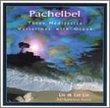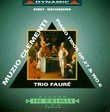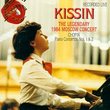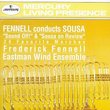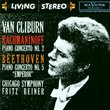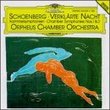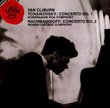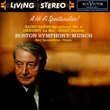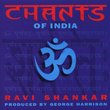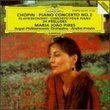| All Artists: Anton Bruckner, Herbert von Karajan, Vienna Philharmonic Orchestra Title: Bruckner: Symphony No. 7 Members Wishing: 2 Total Copies: 0 Label: Deutsche Grammophon Release Date: 7/23/1996 Genre: Classical Styles: Historical Periods, Modern, 20th, & 21st Century, Symphonies Number of Discs: 1 SwapaCD Credits: 1 UPC: 028943903721 |
Search - Anton Bruckner, Herbert von Karajan, Vienna Philharmonic Orchestra :: Bruckner: Symphony No. 7
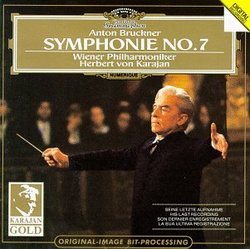 | Anton Bruckner, Herbert von Karajan, Vienna Philharmonic Orchestra Bruckner: Symphony No. 7 Genre: Classical
|
Larger Image |
CD DetailsSimilar CDs
Similarly Requested CDs |
CD ReviewsBruckner made easy danielinyaracuy | San Felipe, Yaracuy Venezuela | 03/17/2001 (5 out of 5 stars) "Karajan ended his recording career with this CD. It is difficult to avoid the easy cliches that come with this comment. I will just say that although Karajan was not one of my favorites, I am more than ready to admit that quite often he reached greatness, and this CD is one of those occasions. This is definitely the best 7th symphony of Bruckner that I have heard. The keen understanding that Karajan had of it, and the magical tool of the Wiener Philharmonic pretty much assures us that it will be a while until anybody comes up with a better interpretation. The 7th is reputedly the "easiest" symphony for the neophyte. I think that perhaps it is the less demanding of them, even the simplest. Too often it is played without much scope. Karajan here shows us that the 7th should not be taken for granted and that it speaks to the deeper recess of our soul as much as its companions. However he does not stop there and he shows us the sunnier aspects of the music of Bruckner, nowhere more apparent than in this work, except perhaps curiously in some passages of the 4th. I would say that the understanding of this balance by Karajan is what makes this recording so great." Near-death serenity Bruce Hodges | New York, NY | 08/10/2004 (5 out of 5 stars) "This symphony opens with one of the most gorgeous passages for cello ever written, and although I am not one to rave on and on about the Vienna Philharmonic, they deliver this magical beginning as well as I've ever heard it. Herbert von Karajan takes his time here, and the orchestra follows suit with a glorious, often magic performance. Although there is no single "right" approach to this music, I confess that I prefer my Bruckner to err slightly on the slow side. The composer's long phrases are so beautiful that it seems like a waste to rush through them, and I like conductors who can linger on the huge paragraphs (and orchestras with the technical prowess to support this approach). In what would be his last recording, von Karajan seems to have found more quiet mystery here than usual (as in his final Bruckner Eighth, also with Vienna). This is a glowing, serene journey -- different from say, Georg Solti's slightly faster, and more intense version with Chicago. The sound quality is excellent, as well, even if to my ears not quite as ideal as for that Eighth. As one of Bruckner's most popular works, the Seventh is well-preserved on disc, in a crowded cluster of memorable recordings from many eras. I also admire Christoph von Dohnanyi's beautiful version with the incomparable Cleveland Orchestra, and the aforementioned Solti gives me more pleasure than I might have thought at first. But this final von Karajan breath does seem to have a special aura." GOLD INDEED ! Santa Fe Listener | 10/18/2000 (5 out of 5 stars) "Too bad I don't have six stars : it's worth it .It is the first time I hear all the sounds of this great symphony , and I must say I am socked by the reachness and the greatness of this recording !! Karajan made his final recording as if he knew he would meet Bruckner , and somehow this was intended as a gift . This is far more remarkable than other recordings of the 7th - even the one from 1971 on EMI with him and The Berlin Philharmonic . As far as I am concerned , The Vienna Philharmonic gave his best and probably there will never be something quit like this recording . The tempi are a little bit changed , regarding his '71 recording , but that makes the recording more interesting . The trumpet in the scherzo is absolutelly magnificent and by the way , I finally heard the flute in this movement : Karajan brings out the details of this symphony , something he missed to do with The Berlin Philharmonic . In the end , if you want a recording of the 7th , go out and buy this one !!!"
|

 Track Listings (4) - Disc #1
Track Listings (4) - Disc #1
